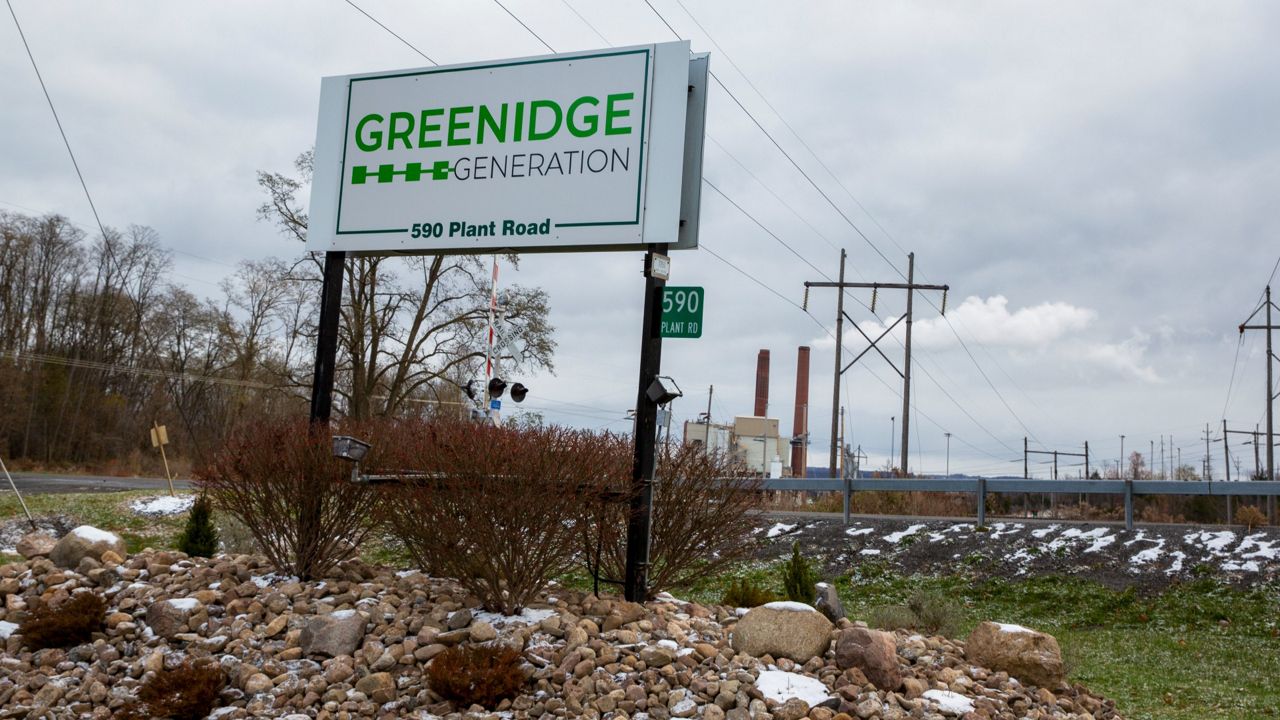Last month, the New York state Assembly voted to pass Democratic Assemblymember Anna Kelles’ two-year moratorium on new cryptocurrency mining. The idea behind the bill is to give the New York state Department of Environmental Conservation the time to conduct an environmental impact study of the practice.
The bill would prevent new permits from being issued for a very specific kind of cryptocurrency operation, known as carbon-base fueled, proof-of-work mining operations, that use behind-the-meter energy.
The bill still needs to pass in the state Senate and be signed by Gov. Kathy Hochul before it can become law.
The allure of cryptocurrency is that by using blockchain technology, financial transactions are instantaneous, secure and very difficult to trace. But there is a downside to proof-of-work mining: it takes enormous amounts of energy to run the thousands of computers used to “mine” coins.
This is why Assemblymember Kelles said her bill is so narrowly focused.
“This particular type of validation of cryptocurrencies is called proof-of-work, which is synonymous with cryptocurrency mining. There is no other kind of method that is called mining. It has been found across the globe to use phenomenal amounts of energy in comparison to other forms of validation such as proof-of-stake, for example,” Kelles told Capital Tonight.
Cryptocurrency “mining” isn’t mining in the usual sense of the word. It’s millions of computers competing with each other to validate transactions. The more computers a miner has, the greater the advantage — and the more energy used.
Upstate New York is attractive to cryptocurrency miners for a variety of reasons, including abundant clean air and water, relatively cool temperatures and cheap hydroelectric energy with which to power computers.
Upstate New York also has several old power plants that are ready-made to house these mining operations, some of which are being purchased by publicly-traded companies. These companies are re-purposing the power plants to make their own energy “behind the meter," meaning it is produced and consumed on-site.
“We are a prime target,” Kelles said of upstate.
One of the largest cryptocurrency mining operations in upstate New York is Greenidge Generation, located on the shores of Seneca Lake in the Finger Lakes region. Critics, including Kelles, argue that the crypto-mining taking place at Greenidge is hurting the already established agritourism and wine industry there.

The assemblymember also argues that cryptocurrency mining is not a big job creator.
“Mining itself is not a huge job creator because the computers, first of all, are doing all the work. But secondly, what’s really important, is that the algorithm they are running is very simple. It’s not like the algorithm for the Skype app… and therefore it doesn’t take a massive amount of engineering jobs…to maintain,” Kelles said.
“[Cryptocurrency mining] is a very small fraction of jobs compared to [agritourism],” said Kelles.
But cryptocurrency advocates, including Republican Assemblyman Robert Smullen, argue that New York is a world leader in financial services, so why shouldn’t the state lead when it comes to cryptocurrency as well?
Smullen also takes issue with Kelles’ characterization of the jobs created by such operations.
“These are good jobs because they’re electrical jobs, essentially, is what they are, and they’re running all of these facilities,” Smullen explained. “This is a new form of advanced manufacturing.”
Indeed, the union IBEW is a supporter of cryptocurrency mining.
As for Greenidge Generation in particular and its plan to expand from the 17,000 computers it has operating currently, Smullen isn’t concerned.
“[Greenidge] is probably one factory in one small part of one town so I don’t think it’s disrupting any agritourism brand for the beautiful area of the Finger Lakes,” Smullen told Capital Tonight.
What the assemblyman is very concerned about is the possibility of a two-year moratorium on new cryptocurrency operations.
“In this industry, two years is literally light speed in the blink of an eye,” Smullen said. “This industry, financial technical things, they can go anywhere.”
The key, according to the assemblyman, is getting miners to come to New York, and then keeping them here.
“This is commerce that’s very important to the future of financial services industry. During the pandemic, we saw that jobs in New York City, many of them could be done from anywhere. My concern then and my concern now is that we’ve set up a regulatory environment in this state which positively incentivizes the financial services industry, which is going to evolve over time with technology to stay in New York state,” Smullen said.


